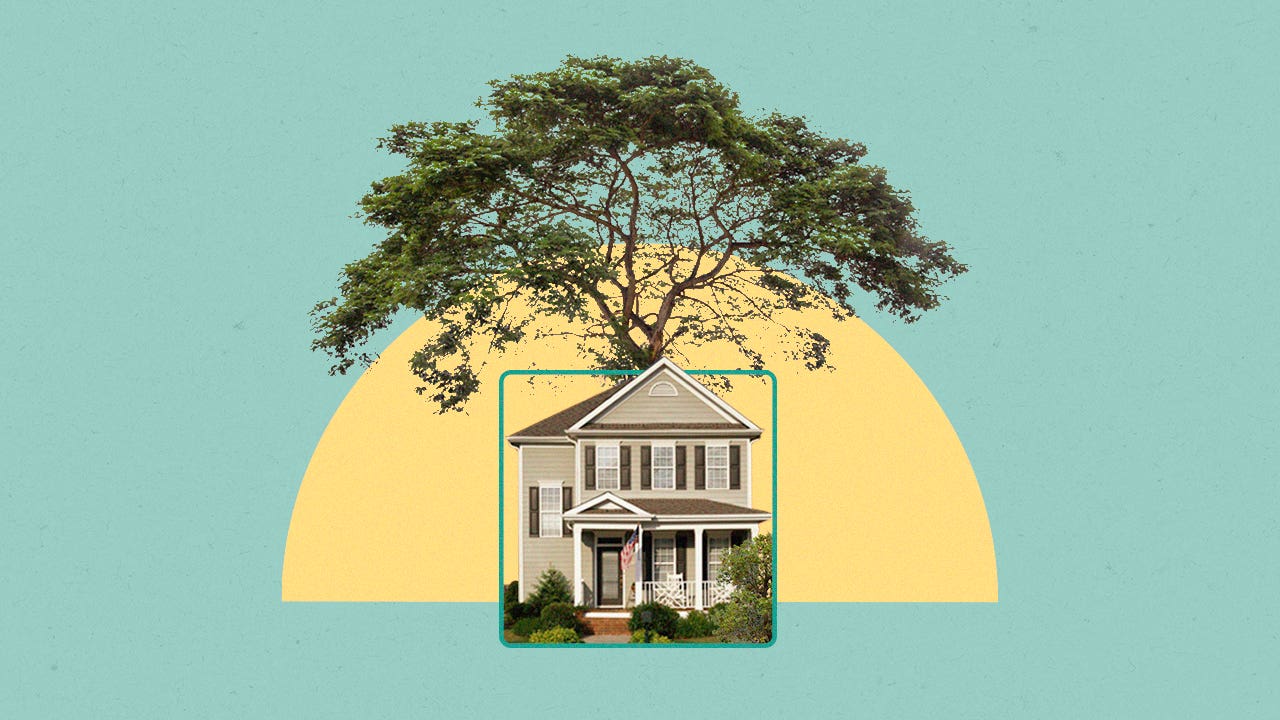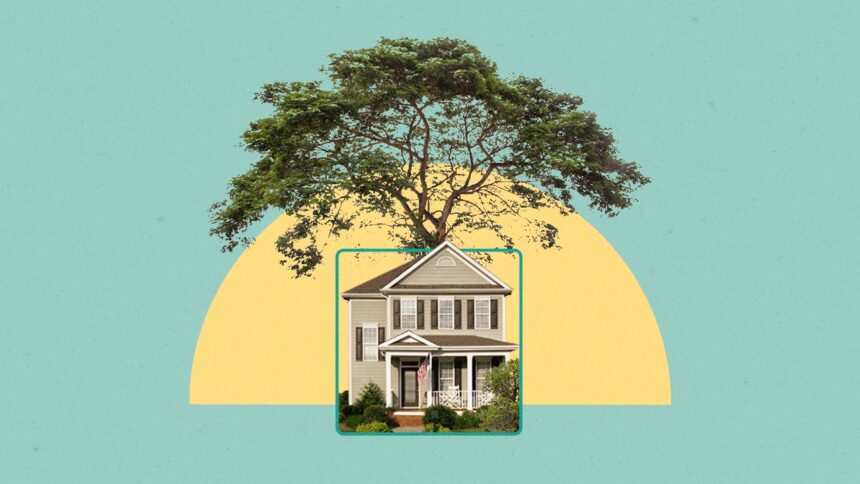
Images by Getty Images. Illustrations by Austin Coule Certification/Bankrate
Key takeout
-
Early repayment of your mortgage increases your budget security and flexibility.
-
The reward for your mortgage will also link your money to your home. You will not be able to access it unless you refinance your cash out, get a second mortgage, or sell your home.
-
If you have additional funds to pay off your mortgage faster, consider whether you can invest that money better elsewhere.
Cutting your mortgage early will free you, but if you make their money to work elsewhere, the amount you save on interest may be less than you earn.
Consider this before committing to paying your mortgage early.
Can I pay off my mortgage quickly?
The short answer is yes – you can pay off your mortgage early. This is called a mortgage advance payment.
Most mortgages don’t come with a prepayment penalty, so you can make additional payments or pay off the loan completely at any time without paying any fees.
If you’re not sure if your loan includes this fee, then again, in most cases, please refer to one of the closing disclosures or look for the mortgage memo section related to “price rights.” Alternatively, you can ask your mortgage servicer.
Things to consider before paying off an early mortgage
Will other investments be better than paying off your mortgage early?
There is no guarantee for investment, but according to some experts, it makes more sense in more ways than focusing your money on your mortgage.
“Sadly, mathematics says it’s almost always better to invest anywhere other than a mortgage,” says Richard Bowen, CPA and owner of Bowen Accounting in Bakersfield, California.
A good case: current mortgage rates are still slightly lower than long-term stock market returns. On average, the S&P 500 has returned 10% over the last 90 years.
However, the S&P average ignores the volatility of the return. You may see a 10% appreciation over the long term, but you may experience a low return rate of 1 year or 5 years or more. For many people, that is a compelling reason to pay off their debts instead.
“The problem is, no one can guarantee you an investment,” Bowen says. “You can put money in the stock market and lose money. You can put money in real estate.
Will all your cash be tied up in the house?
Your home is considered a non-liquid property as it can take more than a few months and may cost you real estate agents, repairs and other expenses. Also, getting a second mortgage takes time and money.
One approach is to combine emergency funds with assets such as equities, mutual funds, the US Treasury Department, bonds, and marketable securities available in taxable investment accounts. These are easy to convert to cash in a pinch.
For your emergency fund, it’s best to maintain a cushion that protects you for at least six months, says Bowen.
How do you spend your money if you don’t pay off your mortgage early?
If you don’t use it to retire mortgage debt, be realistic about what you do with your money. Once your mortgage is paid back, do you actually use it to move on?
For example, if you are struggling to make money from the bank, it may make sense to pay off your mortgage early. Your home can be a forced relief tool, and by making additional payments you can save thousands of dollars of mortgage interest over time.
“The right thing is what you do,” says Bowen. “This all relates to personal habits. If you’re trying to blow away the extra money anyway, it’s better to let it go home rather than spend it.”
If you find that your mortgage isn’t worth paying off, think about how you’ll use that money. For example, you might do the following:
How important do you value security?
Sometimes it’s not about the bottom line, but about peace of mind. Having a clear and free home can have advantages that cannot be measured strictly financially. For many, eliminating monthly mortgage payments before retirement can provide mental relief when considering living on bonds.
Another potential benefit is the ability to oppose the fairness of your home. A Home Equity Credit Line (HELOC) can be established as a source of emergency revenue or to advance towards other financial goals.
Pros and cons of paying off your mortgage early
Strong Points
- Save money to get interested. Sometimes it’s quite a lot
- I’ll clear my debts from you.
- Eliminate monthly payments (but not homeowner insurance or property tax)
- Increase your equity earlier than planned and increase your ability to rent for your home
Cons
- It will be difficult to tie your money in your home and access it
- Reduce opportunities to invest or pursue other financial goals
- Remove the ability to claim interest tax credit on mortgages
- Reducing the average age of your credit mix and accounts can temporarily have a negative impact on your credits


